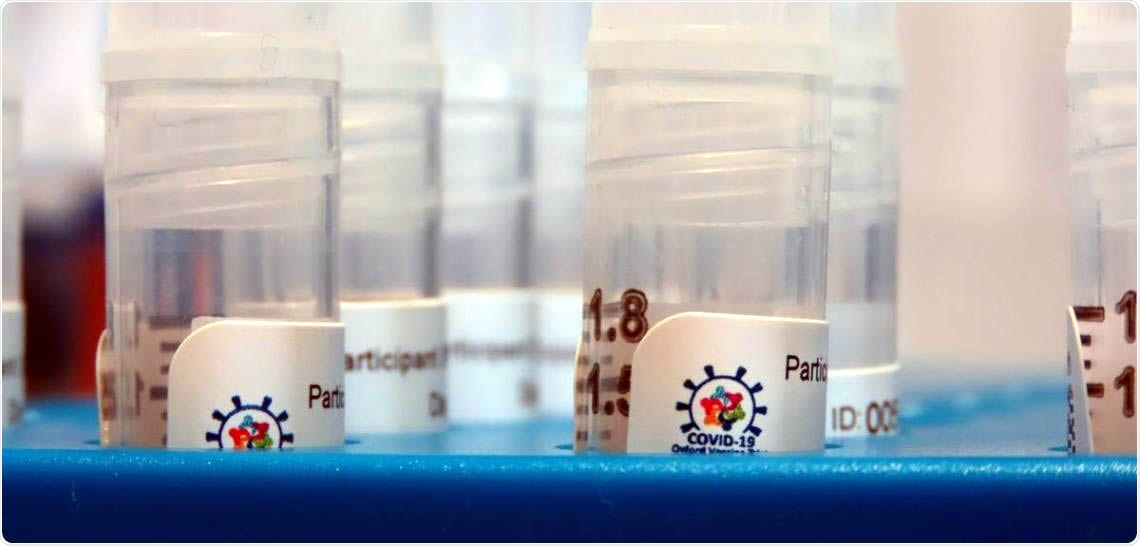The coronavirus disease (COVID-19) pandemic is rippling across the globe, with over 27.47 million reported cases. With the vast spread of the virus, scientists are racing to gain the approval of candidate vaccines against the severe acute respiratory syndrome coronavirus 2 (SARS-CoV-2), the causative agent of COVID-19 disease and Multisystem Inflammatory Syndrome in Children (MIS-C).
A few potential vaccines are now undergoing clinical evaluation. One of the most promising vaccine candidates is the AZD1222 or ChAdOx1 nCoV-19, which was developed by scientists at the University of Oxford and AstraZeneca, a British-Swedish multinational pharmaceutical and biopharmaceutical company.
AZD1222 is one of the vaccines at phase 3 clinical trial level. Phase 3 trials compare a new drug to the standard-of-care drug. These trials assess the side effects of each drug and which drug works better. Phase 3 trials enroll 100 or more patients. Despite promising preliminary results, the pharmaceutical company has put on hold phase 3 trials of the vaccine being developed against SARS-CoV-2, due to a potentially unexplained illness in one of the trial participants.

Phase 3 trial
Of the more than 179 vaccine candidates against COVID-19, the ChAdOx1 nCoV-19 is one of the 34 vaccines that are undergoing human trials. Of these, nine have moved into the penultimate phase of human trials, which will determine if the vaccine will be approved for public use.
In July, the results of the preliminary safety and efficacy study revealed that more than two-thirds of the participants who received the potential vaccine reported headache and fatigue after being vaccinated. In some of the participants, fever and muscle pain were experienced, but there were no reports of any severe adverse reactions.
The vaccine, which is a recombinant viral vector vaccine, uses an adenovirus that carries a gene for one of the proteins of SARS-CoV-2, the virus that causes COVID-19. The adenovirus, which is a weakened version of a chimpanzee common-cold virus, will be used to induce an immune response to protect the body against infection. AstraZeneca gained the license of the vaccine in April from Oxford University.
The Phase 3 trial aimed to enroll approximately 30,000 participants at 80 sites in the United States.
Adverse reaction
The company announced that the trial has been put on hold due to a suspected serious adverse reaction in a volunteer in the U.K.
A spokesperson for AstraZeneca told Stat News in a statement that the firm’s standard review process has induced a pause to vaccination, allowing the company to review the safety data. The pharmaceutical firm also said that the pause of the human trial would let them study the potential adverse reaction. However, the nature of the reaction and when it happened is still unclear, but the patient is expected to make a full recovery.
“As part of the ongoing randomized, controlled global trials of Oxford coronavirus vaccine, our standard review process triggered a pause to vaccination to allow the review of safety data. This is a routine action that has to happen whenever there is a potentially unexplained illness in one of the trials, while it is investigated, ensuring we maintain the integrity of the trials,” AstraZeneca said in a statement.
“In large trials, illnesses will happen by chance but must be independently reviewed to check this carefully. We are working to expedite the review of the single event to minimize any potential impact on the trial timeline. We are committed to the safety of our participants and the highest standards of conduct in our trials,” the firm added.
It is unclear how long the pause on Phase 3 might last. Yet, the progress of the vaccine, along with the other eight that are currently in the phase 3 trials, are being closely watched across the globe as the pandemic widely spreads, affecting 188 countries and territories.
The pause may affect the planned trials at different states in the United Kingdom, Brazil, South Africa, the United States, and India, which are considered hardest-hit nations.
Sources:
Journal reference: